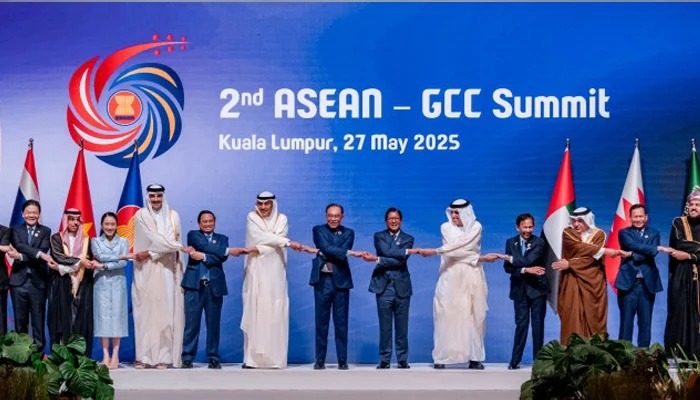
News Desk
KUALA LUMPUR: Leaders from Southeast Asia, China, and the Gulf gathered in Malaysia in a show of regional unity, as economic and geopolitical shifts continue to ripple outward from Washington’s tariff-centric trade policy. The meeting, hosted in Kuala Lumpur, brought together representatives from ASEAN, China, and the six-member Gulf Cooperation Council (GCC), aiming to deepen interregional collaboration and forge a stronger collective response to the challenges posed by protectionist trends.
Malaysian Prime Minister Anwar Ibrahim, addressing the high-level joint session, made a firm call for enhanced cooperation between ASEAN and the GCC, framing it as a necessary step to navigate an increasingly unpredictable global economy. Stressing that the “world is undergoing fundamental change,” he warned that the rise in unilateral actions—especially the imposition of tariffs by the United States—could undermine economic resilience across developing and emerging economies.
Anwar described the current trade environment as precarious, arguing that blocs like ASEAN and the GCC must not be passive observers but active architects of their own future. “We must protect our shared interests with unity and strategic foresight,” he said, pointing to the urgent need for trade diversification and institutional linkages that can cushion their economies from sudden external shocks.
While the meeting’s formal outcomes remain under wraps, its symbolism was clear: regional actors are increasingly willing to recalibrate their partnerships and policies in response to a shifting global order. The gathering signaled not just concern over the consequences of American trade policy, but also a quiet confidence that the Global South can chart its own course—through cooperation, not confrontation.



